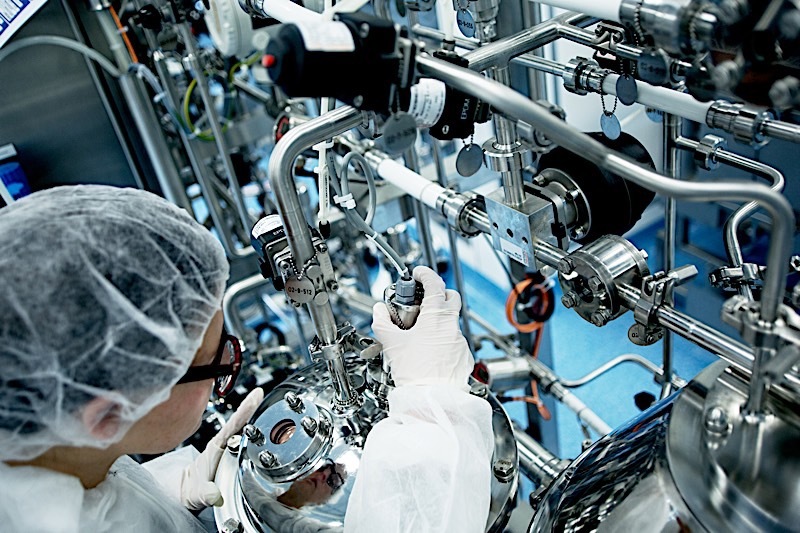Within the National Competence Center (NCC) EuroCC Italy, funded by the European project EuroCC Access, a program has been activated for the development and promotion of High Performance Computing (HPC) tools, advanced simulation and high data analysis. performance in order to promote innovation in industry and the public sector at the national level.
The EuroCC Italy National Competence Center is a European initiative aimed at encouraging activities related to supercomputing (HPC), analysis of large amounts of data (HPDA) and artificial intelligence (AI) for the benefit of companies, especially small and medium-sized ones.

In particular, the Center of Competence intends to channel knowledge from the world of research into targeted training and technology transfer actions, in order to respond to the concrete needs of the productive fabric, thanks also to the coordinated intervention of trade associations.
In this context, the EuroCC Italy National Competence Center will support the Italian pharmaceutical company Dompé, which has a long experience in the use of HPC infrastructures for research, in the implementation of four innovative projects for the development of Proof of Concept (PoC) in the in the development of new drugs.
Similarly to the projects presented in the two Calls 2021 EuroCC Italy Industry, EuroCC Italy will provide hours of calculation and specific consultancy.
The four Proof of Concepts developed will focus on the following themes:

Enhance the current Molecular Dynamics simulation tools
Molecular Dynamics techniques have recently acquired an important role in in-silico approaches to drug discovery. In particular, the ability to study very complex systems from a dynamic point of view allows researchers to more accurately simulate and describe in more detail the chemistry and physics of biological processes. The enormous interest in this approach is also demonstrated by the strong collaborations born between large pharmaceutical companies and Big Tech.
To date, the availability of advanced technologies that allow high-performance simulations (HPC centers, GPU processors, etc.) is essential to drastically lower the computational cost required to run biological simulations.
With this project Dompé aims to generate an integrated network capable of pushing the concept of Molecular Dynamics to a higher level, developing two frameworks that can lead to an acceleration of the aforementioned technologies: improve the algorithms used in the MD engines and verify the use of special architectures for this purpose.

Define new frameworks based on Artificial Intelligence (Machine Learning) to improve the accuracy of molecular docking simulations:
The estimation of the binding affinity between protein and ligand is an essential part of the drug discovery process. Different approaches have been developed to build functions (empirical, forcefield based, knowledge based and, recently, machine learning based) to measure the binding affinity between the receptor and the possible poses of the ligand generated by the docking algorithms. These functions are called scoring functions and classify different protein-ligand complexes by returning a free energy change value, or score, following docking. However, the number of ligands to be evaluated in virtual screening campaigns is usually so high that in order to obtain results in acceptable times, approximations are introduced that involve poorly accurate predictions of binding affinity.
Machine learning methods can be employed to address this problem. Recent studies have explored the usefulness of image recognition-based deep learning approaches to select the most promising ligands. However, to generate a robust and reliable model for each complex, the model must be trained with hundreds of poses of the same ligand.
With this project, Dompé aims to build a trained, validated and tested model thanks to the CINECA HPC infrastructure capable of discriminating only the admissible poses of the ligand, at which to evaluate the binding affinity, thus significantly reducing the execution time. of virtual screening campaigns.

Experiment with the use of Quantum Computing methodologies in the context of new drug design simulations
Molecular Docking (MD) is an important step in the drug discovery process that aims to calculate the location and preferred shape of a ligand relative to a second molecule, when the two are bound to each other. During this “in-silico analysis” phase, the 3D representation of the molecule is manipulated according to its degrees of freedom: rigid roto-translation and rotations of fragments along the rotating bonds. The computational resources needed to tackle MD problems are usually quite large since problems of this type involve rapidly growing dimensionality with the number of atoms and degrees of freedom of the molecule itself. As a result, the MD problem is usually addressed via greedy algorithms running on High Performance Computing (HPC) systems. In recent years, the potential of Quantum Computing (QC) has undergone significant developments thanks to clear improvements on both the software and hardware sides. With this project, Dompé aims to develop a problem-solving approach by selecting the ideal location of the ligand inside a protein pocket through Quantum Annealing (QA) techniques, through the translation of the problem itself in the form Higher-order Unconstrained Binary Optimization (HUBO), in order to make it solvable for annealing by quantum solvers such as D-Wave and understand the peculiarities and limitations of these devices and compare their performance with state-of-the-art molecular docking methods.

Simulation of production processes in the pharmaceutical sector through CFD (Computational Fluid Dynamics) techniques
Granulation, i.e. the process of assembling primary particles (seed) into larger, semi-permanent aggregates (granules), is one of the most significant unit operations employed in the pharmaceutical industry for the production of pharmaceutical dosages, mainly in the form of tablets. and capsules. The main objective of this study is the identification of an optimal range for the critical process parameters (CPP) whose effects will be linked to the critical quality attributes (CQA) of the final product through the development of a computational fluid dynamics model ( CFD) able to describe the dynamics of particles. Initially we consider a weak coupling between these phenomena, that is with the fluid dynamics that influences the heat transfer, but not vice versa. The possibility of introducing a multiphase approach and a non-Newtonian behavior will then be evaluated. On the basis of the Reynolds number that characterizes the flow field, we will consider the introduction of turbulence models, especially around the nozzle through which, using very high pressures, the binder solution is sprayed for the generation and coating of the granules. Finally, we will use OpenFOAM, a C ++ library for complex multiphysics simulations based on finite volume discretization. The HPC resources made available by CINECA will be of paramount importance to correctly model all the details contained in the granulation volume through the refinement of the model grid in the most critical regions such as filters and nozzle.



